「The INDEPENDENT」という
イギリスのニュースサイトによると、
福島第一原子力発電所の
周囲から
野鳥類が姿を消していると言います。
チェルノブイリ事故のときにも
みられた現象らしいです。
ただ、事故の影響による被害は、
福島の方が
残念ながら上回っているようです。
参考までに、
全文、引用しておきます。
野鳥の動きは、
これから起こることの
予兆と考えていいのでしょうか。
まさか、これをもって、
観察者のストレスによる野鳥の見落としと言う人は、
いないでしょう。
――Bird numbers plummet around stricken Fukushima plant――
Researchers working around Japan's disabled Fukushima Daiichi nuclear plant say bird populations there have begun to dwindle, in what may be a chilling harbinger of the impact of radioactive fallout on local life.
In the first major study of the impact of the world's worst nuclear crisis in 25 years, the researchers, from Japan, the US and Denmark, said their analysis of 14 species of bird common to Fukushima and Chernobyl, the Ukrainian city which suffered a similar nuclear meltdown, showed the effect on abundance is worse in the Japanese disaster zone.
The study, published next week in the journal Environmental Pollution, suggests that its findings demonstrate "an immediate negative consequence of radiation for birds during the main breeding season [of] March [to] July".
Two of the study's authors have spent years working in the irradiated 2,850 sq metre zone around the Chernobyl single-reactor plant, which exploded in 1986 and showered much of Europe with caesium, strontium, plutonium and other radioactive toxins. A quarter of a century later, the region is almost devoid of people.
Timothy Mousseau and Anders Pape Moller say their research uncovered major negative effects among the bird population, including reductions in longevity and in male fertility, and birds with smaller brains.
Many species show "dramatically" elevated DNA mutation rates, developmental abnormalities and extinctions, they add, while insect life has been significantly reduced.
以上です。
イギリスのニュースサイトによると、
福島第一原子力発電所の
周囲から
野鳥類が姿を消していると言います。
チェルノブイリ事故のときにも
みられた現象らしいです。
ただ、事故の影響による被害は、
福島の方が
残念ながら上回っているようです。
参考までに、
全文、引用しておきます。
野鳥の動きは、
これから起こることの
予兆と考えていいのでしょうか。
まさか、これをもって、
観察者のストレスによる野鳥の見落としと言う人は、
いないでしょう。
――Bird numbers plummet around stricken Fukushima plant――
Researchers working around Japan's disabled Fukushima Daiichi nuclear plant say bird populations there have begun to dwindle, in what may be a chilling harbinger of the impact of radioactive fallout on local life.
In the first major study of the impact of the world's worst nuclear crisis in 25 years, the researchers, from Japan, the US and Denmark, said their analysis of 14 species of bird common to Fukushima and Chernobyl, the Ukrainian city which suffered a similar nuclear meltdown, showed the effect on abundance is worse in the Japanese disaster zone.
The study, published next week in the journal Environmental Pollution, suggests that its findings demonstrate "an immediate negative consequence of radiation for birds during the main breeding season [of] March [to] July".
Two of the study's authors have spent years working in the irradiated 2,850 sq metre zone around the Chernobyl single-reactor plant, which exploded in 1986 and showered much of Europe with caesium, strontium, plutonium and other radioactive toxins. A quarter of a century later, the region is almost devoid of people.
Timothy Mousseau and Anders Pape Moller say their research uncovered major negative effects among the bird population, including reductions in longevity and in male fertility, and birds with smaller brains.
Many species show "dramatically" elevated DNA mutation rates, developmental abnormalities and extinctions, they add, while insect life has been significantly reduced.
以上です。










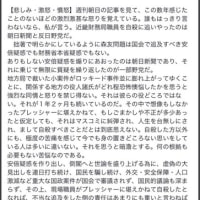
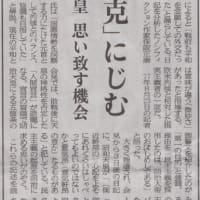
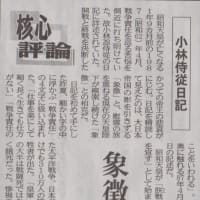


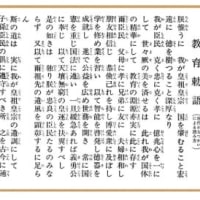



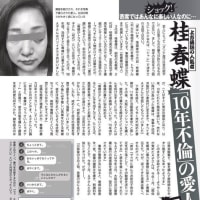
※コメント投稿者のブログIDはブログ作成者のみに通知されます